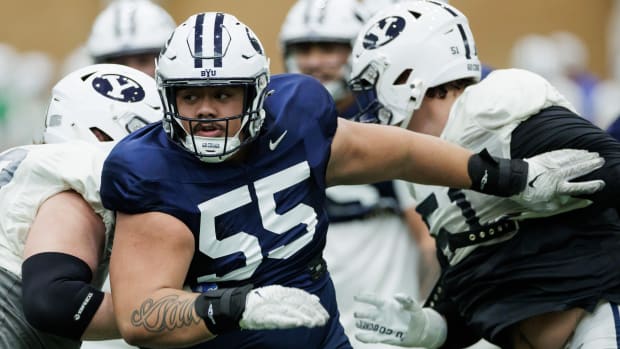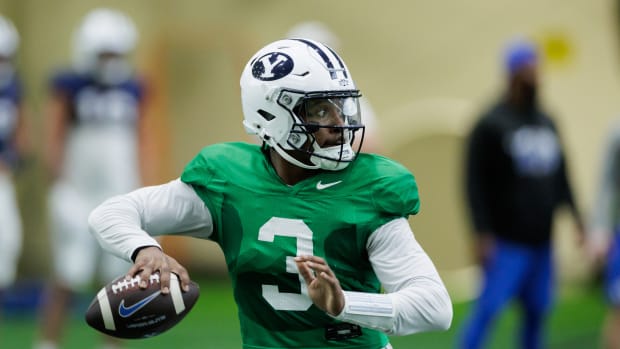Another Report Indicates Big 12 in 'Serious' Talks with PAC-12 Schools
On Tuesday, Dennis Dodd reported that the Big 12 was in "deep discussions" to invite up to six PAC-12 schools. On Wednesday, The Athletic confirmed that report, saying the "The league is having 'serious' talks with six Pac-12 schools — Arizona, Arizona State, Colorado, Oregon, Utah and Washington — and is determined to move quickly."
During the news frenzy last Summer when the Big 12 added BYU, Cincinnati, UCF, and Houston, the same journalists from The Athletic correctly reported on the process from the very beginning. These reports from national outlets should be taken seriously, and individual statements from PAC-12 schools and its reporters should be taken with a grain of salt.
The same report from The Athletic also indicated that new Big 12 Commissioner Brett Yormark was being "super aggressive" and determined to play offense, not defense.
Decision Time is Approaching for PAC-12 Schools
For the six PAC-12 schools being considered by the Big 12, joining the Big 12 is not their only option. On Tuesday, multiple reports indicated that the PAC-12 is pursuing a "loose agreement" with the ACC in which the champions of those conferences would play each other at the end of the season in Las Vegas. The idea, at least in theory, is that adding a game of champions would make the PAC-12's media package more attractive to ESPN.
The six PAC-12 schools have a decision to make: join the Big 12 or remain in the PAC-12 with the ACC as an ally. It's important to think of their decision from the two perspectives. Arizona, Arizona State, Utah, and Colorado are thinking about survival. Washington and Oregon are thinking about positioning themselves for the Big Ten or the SEC.
If Arizona, Arizona State, Utah, and Colorado, now nicknamed the four corner schools, decide to stick with Oregon and Washington in the PAC-12, they are taking on a substantial risk. What if Oregon and/or Washington is invited to the Big Ten once Notre Dame decides its future? The PAC-12 would be on the verge of collapse. And what about the ACC? Besides the obvious jokes that would come with the PAC-12 saving themselves with another "loose" alliance, the top brands in the ACC like Clemson, Florida State, and North Carolina are candidates to join one of the big two conferences. If that happens, the ACC could be in the same situation that the PAC-12 finds itself today. And if the ACC falls, the Big 12 could expand East with the remaining ACC schools instead of West.
In the worst-case scenario for the four corner schools, Oregon and the top ACC brands could leave for greener pastures at the same time. The PAC-12 could collapse, the ACC could collapse, and they could be left without a home in a power conference.
There is a higher reward potential in sticking with the two most powerful brands in Oregon and Washington in the PAC-12, but it comes with even higher risk. If the four corner schools move to the Big 12, they could secure a more stable future and their move could force Washington and Oregon to join them in the Big 12.
Conference realignment typically starts with greedy schools at the top of the sport. The aftermath, however, is often driven by schools seeking survival. A loose partnership with the ACC may not be enough to survive. We've already seen how quickly alliances evaporate when schools act out their own self interests. In this author's opinion, PAC-12 commissioner George Kliavkoff must propose a plan that gives the four corner schools a better chance to survive than the Big 12. Until then, the PAC-12 is in grave danger.




